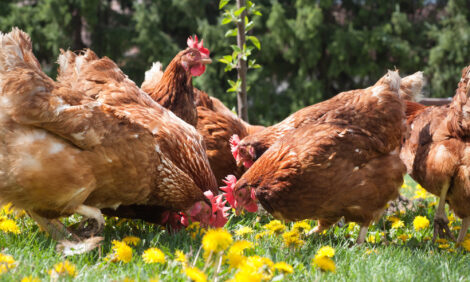



Training Films Launched to Bring Viet Nam “Towards Safer Hatcheries”
VIET NAM - Two training films have been launched that will be used to educate animal health professionals and guide hatchery owners and workers to better manage their hatcheries in a more hygienic and profitable way.The Department of Livestock Production (DLP) of the Ministry of Agriculture and Rural Development (MARD), and the Emergency Centre for Transboundary Animal Diseases (ECTAD) of the Food and Agriculture Organisation (FAO) Viet Nam, launched 'Towards Safer Hatcheries', a training film and an advocacy film for small and medium scale hatchery biosecurity in Viet Nam with the financial support from the United States Agency for International Development (USAID).
The training film will be used to educate animal health professionals and guide hatchery owners and workers to better manage their hatcheries in a more hygienic and profitable way. Meanwhile, the advocacy film aims to inspire leaders, donors, partners and the general public, including raising awareness and promoting the importance of having clean and safe hatcheries.
These films were developed based on success stories from DLP and FAO’s pilot hatchery biosecurity project in Can Tho and Quang Tri Provinces.
“By applying the recommended biosecurity practices, our income from the hatchery business has increased by five per cent, and our living environment is also much better and cleaner now” stated Le Viet Tue, one of the hatchery owners from the pilot project in Quang Tri Province.
According to FAO and DLP’s assessment, the small- and medium-scale hatcheries that followed recommended biosecurity measures resulted in an average increase of 3.9 per cent in egg hatchability during the three month pilot, offering hatchery owners an extra income from VND5.64 million to VND90 million (US$271 to US$4,327), depending on the hatchery size.
Additionally, the increased survival rate of ducklings during their first week of life enhanced customer satisfaction and thus the reputation and business of hatchery owners.
“The models have shown that some simple measures can drastically improve the hygiene and productivity of hatcheries and thus contribute to healthier poultry production. This evidence has been used to issue official guidelines by MARD to support small and medium size hatcheries and an improved business model” said Scott Newman, the Senior Technical Coordinator of FAO ECTAD Viet Nam.
With the rising demand of poultry resulting from economic growth and urbanisation in Viet Nam, there has been an expansion in the number of small and medium scale family operated hatcheries. Therefore these hatcheries have become an important node in Viet Nam’s poultry production chain.
Since poor biosecurity in these facilities contributes to the spread of pathogens like Avian Influenza (AI) viruses, reduces day old bird quality, causes environmental pollution and affects workers’ health, adapting hatcheries to follow the recommended basic biosecurity measures is very important.
“With the assistance from USAID, DLP and FAO will continue to cooperate effectively and implement the biosecurity measures nationwide to reduce the risk of AI and promote a clean and safer environment for both humans and poultry in Viet Nam.” said Hoang Thanh Van, the Director of DLP.
FILM: Towards safer hatcheries
FACTSHEET: How simple biosecurity measures can change a farmer’s life
Original source: FAO report









